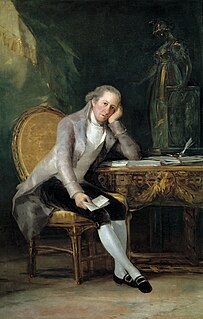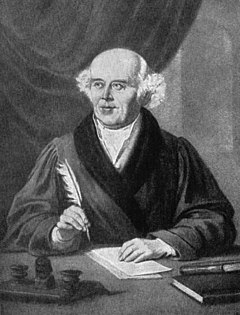
Susan Jane Blackmore is a British writer, lecturer, sceptic, broadcaster, and a Visiting Professor at the University of Plymouth. Her fields of research include memes, evolutionary theory, psychology, parapsychology, consciousness, and she is best known for her book The Meme Machine. She has written or contributed to over 40 books and 60 scholarly articles and is a contributor to The Guardian newspaper.
Pseudohistory is a form of pseudoscholarship that attempts to distort or misrepresent the historical record, often using methods resembling those used in legitimate historical research. The related term cryptohistory is applied to a pseudohistory based upon or derived from the superstitions inherent to occultism. Pseudohistory is related to pseudoscience and pseudoarchaeology and usage of the terms may occasionally overlap. Although pseudohistory comes in many forms, scholars have identified many features that tend to be common in pseudohistorical works. One such feature is that pseudohistory is nearly always motivated by a contemporary political, religious, or personal agenda. Pseudohistory also frequently presents a big lie or sensational claims about historical facts which would require the radical revision (re-writing) of the historical record.
Skeptical Inquirer is a bimonthly American general-audience magazine published by the Committee for Skeptical Inquiry (CSI) with the subtitle: The Magazine for Science and Reason. In 2016 it celebrated its fortieth anniversary. For most of its existence, the Skeptical Inquirer (SI) was published by the Committee for the Scientific Investigation of Claims of the Paranormal, widely known by its acronym CSICOP. In 2006 the CSICOP Executive Council shortened CSICOP's name to the Committee for Skeptical Inquiry (CSI) and broadened its mission statement.
The skeptical movement is a modern social movement based on the idea of scientific skepticism. Scientific skepticism involves the application of skeptical philosophy, critical-thinking skills, and knowledge of science and its methods to empirical claims, while remaining agnostic or neutral to non-empirical claims. The movement has the goal of investigating claims made on fringe topics and determining whether they are supported by empirical research and are reproducible, as part of a methodological norm pursuing "the extension of certified knowledge". The process followed is sometimes referred to as skeptical inquiry.

Paul Kurtz was a prominent American scientific skeptic and secular humanist. He has been called "the father of secular humanism". He was Professor Emeritus of Philosophy at the State University of New York at Buffalo, having previously also taught at Vassar, Trinity, and Union colleges, and the New School for Social Research.

Michael Brant Shermer is an American science writer, historian of science, founder of The Skeptics Society, and editor-in-chief of its magazine Skeptic, which is largely devoted to investigating pseudoscientific and supernatural claims. The Skeptics Society currently has over 55,000 members. Shermer engages in debates on topics pertaining to pseudoscience and religion in which he emphasizes scientific skepticism.

The New World Order or NWO is claimed to be an emerging clandestine totalitarian world government by various conspiracy theories.
The Skeptics Society is a nonprofit, member-supported organization devoted to promoting scientific skepticism and resisting the spread of pseudoscience, superstition, and irrational beliefs. The Skeptics Society was founded by Michael Shermer as a Los Angeles-area skeptical group to replace the defunct Southern California Skeptics. After the success of its magazine, Skeptic, introduced in early 1992, it became a national and then international organization. The stated mission of Skeptics Society and Skeptic magazine "is the investigation of science and pseudoscience controversies, and the promotion of critical thinking."
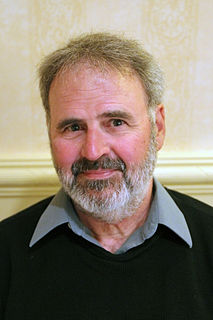
Robert Todd Carroll was an American writer and academic. Carroll was best known for his contributions in the field of skepticism; he achieved notability by publishing The Skeptic's Dictionary online in 1994. He was elected a fellow of the Committee for Skeptical Inquiry in 2010. He described himself as a naturalist, an atheist, a materialist, a metaphysical libertarian, and a positivist.

Massimo Pigliucci is Professor of Philosophy at CUNY-City College, formerly co-host of the Rationally Speaking Podcast, and formerly the editor in chief for the online magazine Scientia Salon. He is an outspoken critic of pseudoscience and creationism, and an advocate for secularism and science education.

Steven Paul Novella is an American clinical neurologist and assistant professor at Yale University School of Medicine. Novella is best known for his involvement in the skeptical movement.

Questions of Truth is a book by John Polkinghorne and Nicholas Beale which offers their responses to 51 questions about science and religion. The foreword is contributed by Antony Hewish.
Damian Thompson is an English journalist, editor and author. He is an associate editor of The Spectator and editor-in-chief of the Catholic Herald. Previously he worked for The Daily Telegraph where he was religious affairs correspondent and later blogs editor and a Saturday columnist.

Harriet A. Hall is a U.S. retired family physician, former U.S. Air Force flight surgeon and skeptic who writes about alternative medicine and quackery for Skeptic and Skeptical Inquirer.

The Holy Blood and the Holy Grail is a book by Michael Baigent, Richard Leigh and Henry Lincoln.
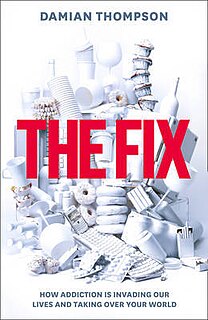
The Fix: How Addiction Is Invading our Lives and Taking Over Your World is a non-fiction book by the British writer and journalist Damian Thompson in which Thompson examines addiction and how it is being harboured in society. His fourth book, it was published in May 2012 by Collins. Shortly after release, its core contention that addiction is not a pathological disorder provoked controversy.

The Young Australian Skeptics (YAS) is an Australian skeptical organisation whose primary focus is its collaborative blog, which attempts to address topics central to science, critical thinking and scientific skepticism. The group has published a Skeptical Blog Anthology Book reviewed in Scientific American, and has been represented in national broadcast media in Australia and North America, skeptically addressing conspiracy theories, as well as discussing topics specific to young members of the skeptical movement.
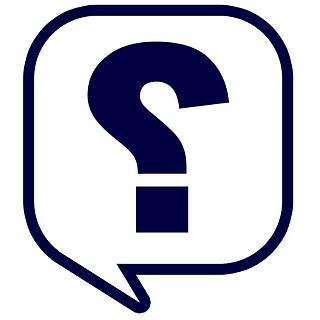
Edinburgh Skeptics is a nonprofit organisation that promotes science, reason and critical thinking in Edinburgh and throughout Scotland. It was founded in 2009. The Society hosts regular social and educational events in Edinburgh and has campaigned against the use of homeopathy and challenged claims of ghost sightings.


